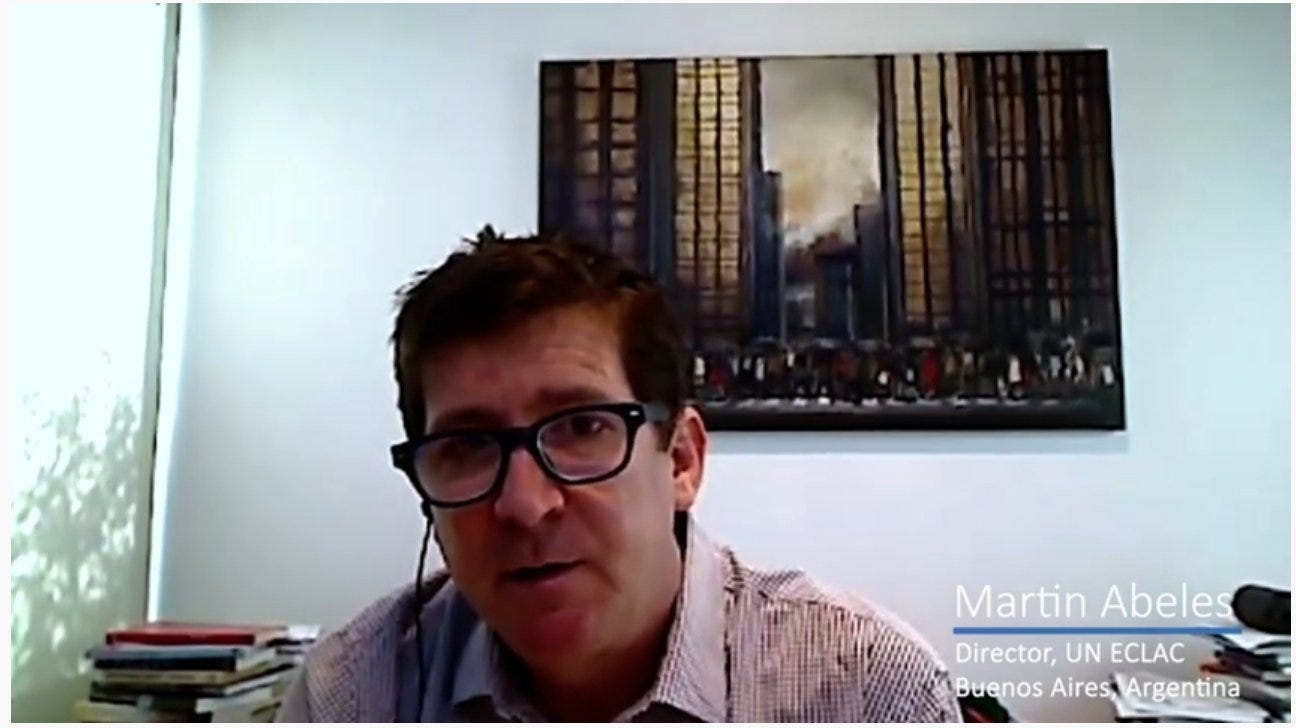Webinar: 'Economic Policies for the Post-Pandemic Recovery', March 26, 2022
10pm Beijing, Kuala Lumpur; 2pm UCT; 10am EST
IDEAs and FLACSO Webinar titled "Economic Policies for the Post-Pandemic Recovery" on March 26, 2022 at 8.00 am Mexico, 2 pm GMT, 7.30 pm IST
IDEAs and FLACSO Webinar titled "Economic Policies for the Post-Pandemic Recovery" on March 26, 2022 at 8.00 am Mexico, 2 pm GMT, 7.30 pm IST
IDEAs (International Development Economics Associates) Network is pleased to announce its upcoming webinar “Economic Policies in the Post Pandemic Recovery”, this March 26th, in association with FLACSO (Facultad Latinoamericana de Ciencias Sociales), Mexico. Register at https://www.networkideas.org/dialogues/
We had the speakers join us briefly for behind-the-scenes pre-webinar discussions on what they see as important starting points for the larger discussion on post-pandemic economic policies we shall have soon. Here is what we found out:
First, we had Jomo Kwame Sundaram (International Islamic University, Malaysia) highlighting the post-pandemic economic downturn coupled with the war in Ukraine as contributing to the stagflation that many developing countries face today. How are we to combat this at the policy level?
Jomo Kwame Sundaram introduces the upcoming IDEAs Dialogue
Read more on the ongoing stagflation and Ukraine incursion, and ensuing blame-game in these articles by Jomo and Anis Chowdhury on IDEAs Network:
https://www.networkideas.org/news-analysis/2022/03/ukraine-incursion/
https://www.networkideas.org/news-analysis/2022/03/stagflation-threat/
Next, we had C. P. Chandrasekhar (renowned economist and columnist) laying the groundwork for the topic at hand- large amounts of money have been pumped into the economy after the 2008 financial crisis and during the post-pandemic recovery. This was done by depending on the bond and equity markets, through purchases at low (or even negative) interest rates. Undoing these monetary measures would also undo the current bond rush & asset price inflation, making future policies more pertinent than ever.
C. P. Chandrasekhar on the bond rush, asset price & inflation on upcoming IDEAs Dialogue
For his recent article on inflation in the Indian economy co authored with Jayati Ghosh, head to https://www.networkideas.org/featured-articles/2022/03/rate-of-inflation/
How was the bond market used post 2008 financial crisis? Find out here at https://www.networkideas.org/news-analysis/2016/09/revving-up-the-bond-market/
For background on how countries are dealing with Covid debt, read this article: https://www.networkideas.org/featured-articles/2020/10/covid-debt-tax-paradigm/
Finally, Martin Abeles (Director, UN ECLAC) reminded us that Latin America’s troubles post-pandemic were not confined to just health, but also ranged across socioeconomic issues- education, energy, housing, etc. The fixation of public policy on macroeconomics- mainly monetary policy- does not augur well for Latin American nations in this present circumstance.
Martin Abeles on what the post-pandemic recovery means for Latin America
Find out more at our webinar where the speakers Martin Abeles, Jomo and C. P. Chandrasekhar develop these ideas further on March 26th. We have Dzodzi Tsikata (Executive Secretary, IDEAs) for moderation and final comments by Alicia Puyana Mutis (Chairperson, IDEAs and Professor, FLACSO). Register NOW and secure your Zoom meeting link at https://www.networkideas.org/dialogues/.
For regular updates on this and upcoming events and content, follow us on our social media handles:
Twitter: https://twitter.com/DevEconNetwork
YouTube: https://www.youtube.com/channel/UCDTBf5BHn6pIoV0Xf09NHGg
Facebook:https://www.facebook.com/DevEconNetwork
LinkedIn: https://www.linkedin.com/in/ideas-network-858a921b4/
---
IDEAs or the International Development Economics Associates is
committed to building a pluralistic network of committed researchers,
teachers and other economists interested in advancing progressive
heterodox approaches to critically analysing and addressing
the problems of economic development processes.
Website: <http://www.networkideas.org>







